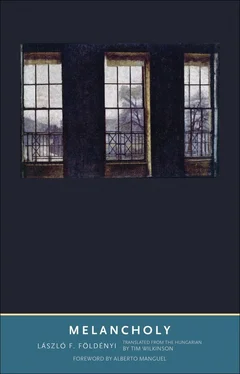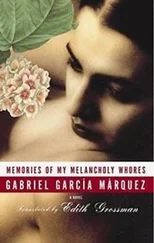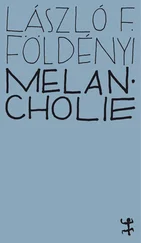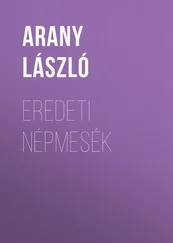All my joys to this are folly,
Naught so sweet as melancholy.
Whereas stanzas evoking the sad and dark times end:
All my griefs to this are jolly,
Naught so sad as melancholy.
7
(Burton, Anatomy , “The Author’s Abstract of Melancholy,” 79)
Melancholia cloaks everything, or rather, anything can be a pretext for melancholia. If a person is a microcosm, then melancholia can typify not just an individual but also the whole world: “Kingdoms and provinces are melancholy, cities and families, all creatures, vegetal, sensible, and rational, that all sorts, sects, ages, conditions, are out of tune. . from the highest to the lowest have need of physic,” the same Burton wrote in 1621, claiming that the bad distribution of humors and the collapse of states were akin to each other, indeed, might be regarded as identical symptoms, which was a typically Baroque notion: “What’s the market? A place, according to Anacharsis, wherein they cozen one another, a trap; nay, what’s the world itself?
A vast chaos, a confusion of manners, as fickle as the air,
domicilium insanorum
[a madhouse], a turbulent troop full of impurities, a mart of walking spirits, goblins, the theatre of hypocrisy, a shop of knavery, flattery, a nursery of villainy, the scene of babbling, the school of giddiness, the academy of vice; a warfare, . wherein every man is for himself” (ibid., “Democritus to the Reader,” 64). The world itself is sin incarnate; sin is the emanation of a deranged, unbalanced soul; derangement, however, is the consequence of a bad distribution of humors. If the
individual
was melancholic, then
the whole world
was melancholic as well, the Baroque understanding of melancholia declared, but the reverse was also true: if the world was melancholic, then every single person had to be melancholic. The great English melancholics of the seventeenth century — Thomas Browne, Robert Burton, and John Donne — were predisposed by their own interpretation of melancholic existence, whence the sly, devious endeavor to prove melancholia applied to everyone. Corresponding to the mixing of the four humors, four kinds of melancholia could arise, Burton informed his extraordinarily quick-learning contemporaries.
8
If
phlegm
was responsible for melancholia (that is, if it was the humor that was in excess) then the person in question was stupid, impassive,
sleepy, foolish, pallid, prone to headaches, plump, and rheumatic; if they were plethoric (that is, had an excess of
blood
), then they were merry and witty, loved music, dancing, and women — could think of nothing else — and knew nothing of sorrow, not even by hearsay; if it was an excess of
bile
, then they were cantankerous, impatient, bloodthirsty, and if they had a fit, they would speak in tongues;
9
and if
black bile
was responsible for the melancholia, then they were timid, solitary, sorrowful, and constantly preoccupied with death. There was no one who was not melancholic, since melancholia was no longer linked with a particular humor.
. . this worlds generall sicknesse doth not lie
In any humour, or one certaine part.
(Donne, “The first Anniversary,” ll. 239–40)
Although Donne does not explicitly name melancholia, he was unmistakably thinking of it. Anyone born under the sign of Saturn (or Mercury), who lived in a climate that was too cold or too hot, whose parents had been melancholic, whose head was small, who had a warm heart or liver, or a moist brain, or a cold stomach, who had been ill for a long time, who was partial to loneliness, who was a scholar, who filled his life with contemplation, was melancholic, as was every aged person in principle. “The four and twenty letters make no more variety of words in diverse languages, than melancholy conceits produce diversity of symptoms in several persons. They are irregular, obscure, various, so infinite, Proteus himself is not so diverse, you may as well make the moon a new coat, as a true character of a melancholy man; as soon find the motion of a bird in the air, as the heart of man, a melancholy man” (Burton,
Anatomy
, partition 1, sec. 3, member 1, subsec. 4, 408).
Humans are melancholic from the very start, says Burton: the causes of melancholia are numberless, which is why the illness is incurable. Yet if everyone is sick, then health must be an unknown concept; health is a utopian standard that, like every utopia itself, becomes a source of fresh melancholia. John Donne asks:
There is no health; Physitians say that wee,
At best, enjoy but a neutralitie.
And can there bee worse sicknesse, than to know
That we are never well, nor can be so?
(Donne, “The first Anniversary,” ll. 92–95)
All-embracing melancholia was a harbinger of omnipotent death.
Illness
became the normal condition, and there was nothing that was not a reminder of death. Every age was cognizant of the close relationship between melancholia and death, but whereas in antiquity the death of melancholics meant an assurance of a new, more highly refined form of life, and in the Middle Ages it went hand in hand with a denial of divine grace and a bowing to evil, in modern times it did not point to anything beyond itself; it meant bodily and spiritual annihilation and nothing else. Death became “down to earth,” with nothing to do any longer with heaven or the afterlife. “Whosoever would grace this frail cottage, in which poverty adorns every corner, with a rational epitome,” wrote Christoph Männling in seventeenth-century Germany, “would be making no inapt statement nor overstepping the mark of well-founded truth if he called the world a general store, a custom-house of death, in which man is the merchandise, death the wondrous merchant, God is most conscientious book-keeper, but the grave the bonded draper’s hall and ware house” (quoted in Benjamin,
German Tragic Drama
, 159). Death lost its metaphysical connotations: it became a
this-worldly
death. It no longer stood outside life, it was no longer an independently existing entity but, despite every Baroque allegorization, an organic appurtenance
of life, inseparable from man. In the sense not just that everyone must die, but also that death does not exist outside man: man belongs to death, and death belongs to man. Man alone has cognizance of death because, strictly speaking, only
he
dies; there is no other creature at whose demise the irreproducible unity of body and soul comes to an end. Animals do not die, since they have no cognizance of their death; they just “pass away,” become
past
in relation to themselves, that is, disappear without a trace, as if they had never existed. Angels do not die either, because they do not possess a transient body. Death is reserved for humans — it belongs
only
to humans, and to
all
humans. Seen from life’s perspective, naturally, every death is different;
10
from the perspective of
death
(if such a thing exists), however, there is no difference, there is only death, and even life is settled in those terms. Death is the chief lord and master of earthly life: “For the World,” writes Thomas Browne, “I count it not an Inn, but an Hospital; and a place not to live, but to dye in” (
Religio Medici
, pt. 2, sec. 11). Life, in Browne’s opinion, is a continuous death, but because death makes man the most distinguished living thing in the universe, death is also a special ability: a
negative possibility
that, if man seizes the opportunity, puts life in a new light. Mortal man may even be filled with pride on account of his own death. There are innumerable ways of destroying him, says Sir Thomas Browne again, and then goes on to say: “There is therefore but one comfort left, that, though it be in the power of the weakest arm to take away life, it is not in the strongest to deprive us of death” (
Читать дальше












